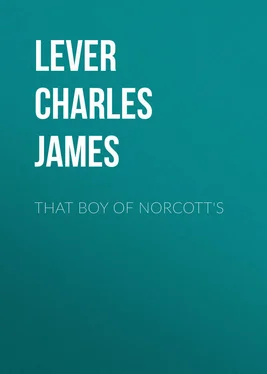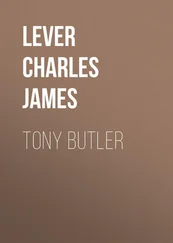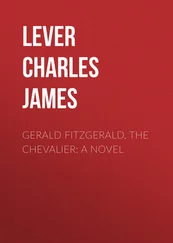Charles Lever - That Boy Of Norcott's
Здесь есть возможность читать онлайн «Charles Lever - That Boy Of Norcott's» — ознакомительный отрывок электронной книги совершенно бесплатно, а после прочтения отрывка купить полную версию. В некоторых случаях можно слушать аудио, скачать через торрент в формате fb2 и присутствует краткое содержание. Издательство: Иностранный паблик, Жанр: literature_19, foreign_antique, foreign_prose, на английском языке. Описание произведения, (предисловие) а так же отзывы посетителей доступны на портале библиотеки ЛибКат.
- Название:That Boy Of Norcott's
- Автор:
- Издательство:Иностранный паблик
- Жанр:
- Год:неизвестен
- ISBN:нет данных
- Рейтинг книги:4 / 5. Голосов: 1
-
Избранное:Добавить в избранное
- Отзывы:
-
Ваша оценка:
- 80
- 1
- 2
- 3
- 4
- 5
That Boy Of Norcott's: краткое содержание, описание и аннотация
Предлагаем к чтению аннотацию, описание, краткое содержание или предисловие (зависит от того, что написал сам автор книги «That Boy Of Norcott's»). Если вы не нашли необходимую информацию о книге — напишите в комментариях, мы постараемся отыскать её.
That Boy Of Norcott's — читать онлайн ознакомительный отрывок
Ниже представлен текст книги, разбитый по страницам. Система сохранения места последней прочитанной страницы, позволяет с удобством читать онлайн бесплатно книгу «That Boy Of Norcott's», без необходимости каждый раз заново искать на чём Вы остановились. Поставьте закладку, и сможете в любой момент перейти на страницу, на которой закончили чтение.
Интервал:
Закладка:
“I am very sorry, sir,” I began; “but I did not know you had risen. Nixon told me about one or two – ”
“Indeed! I was not aware that you and Mr. Nixon had been discussing my habits. Come nearer; nearer still. What sort of dress is this? Is it a smock-frock you have on?”
“No, sir. It’s a blouse to keep my jacket clean. I have got but one.”
“And these shoes; are they of your own making?”
“No, sir. I could n’t make even as good as these.”
“You are a very poor-looking object, I must say. What was Antoine about that he did n’t, at least, make you look like a gentleman, eh? Can you answer me that?”
“No, sir, I cannot”
“Nor I, either,” said he, sighing. “Have you been equally neglected inside as out? Have you learned to read?”
“Yes, sir.”
“And to write?”
“Yes, sir.”
“Write my name, then, there, on that piece of paper, and let me see it.”
I drew nigh, and wrote in a fall, bold hand, Roger Norcott.
“Why not Sir Roger Norcott, boy? Why not give me my name and title too?”
“You said your name, sir, and I thought – ”
“No matter what you thought. This literalism comes of home breeding,” muttered he to himself; “they are made truthful at the price of being vulgar. What do you know besides reading and writing?”
“A little Latin, sir, and some French, and some German, and three books of Euclid, and the Greek grammar – ”
“There, there, that’s more than enough. It will tax your tutor’s ingenuity to stub up all this rubbish, and prepare the soil for real acquirement. I was hoping I should see you a savage: a fresh, strong-natured impulsive savage! What I ‘m to do with you, with your little peddling knowledge of a score of things, I can’t imagine. I ‘d swear you can neither ride, row, nor fence, never handled a cricket-ball or a single-stick?”
“Quite true, sir; but I ‘d like to do every one of them.”
“Of course you have been taught music?”
“Yes, sir; the piano, and a little singing.”
“That completes it,” cried he, flinging his book from him. “They ‘ve been preparing you for a travelling circus, while I wanted to make you a gentleman. Mind me now, sir, and don’t expect that I ever repeat my orders to any one. What I say once I mean to be observed. Let your past life be entirely forgotten by you, – a thing that had no reality; begin from this day – from this very room – a new existence, which is to have neither link nor tie to what has gone before it. The persons you will see here, their ways, their manners, their tone, will be examples for your imitation; copy them, not servilely nor indiscriminately, but as you will find how their traits will blend with your own nature. Never tell an untruth, never accept an insult without redress, be slow about forming friendships, and where you hate, hate thoroughly. That’s enough for the present. Ask Mr. Eccles to have the kindness to take you to his tailor and order some clothes. You must dine alone till you are suitably dressed. After that you shall come to my table. One thing more and you may go: don’t ever approach me with tales or complaints of any one; right yourself where you can, and where you cannot, bear your grievance silently. You can change nothing, alter nothing, here; you are a guest, but a guest over whom I exercise full control. If you please me, it will be well for you; if not, you understand – it will cost me little to tell you so. Go. Go now.” He motioned me to leave him, and I went. Straight to my room I went, and sat down at once to write it all to mother. My heart swelled with indignation at the way I had been received, and a hundred times over did I say to myself that there was no poverty, no hardship I would not face rather than buy a life of splendor on such ignominious terms. Oh, if I could but get back again to the little home I had quitted, how I would bless the hour that restored me to peace of mind and self-respect! As I wrote, my indignation warmed with every line. I found that my passion was actually mastering my reason. Better to finish this, later on, – when I shall be cooler, thought I; and I walked to my window and opened it. There were voices of people speaking in the paddock below, and I leaned over the balcony and saw the two men I had seen at breakfast, seated on rustic chairs, watching a young horse being broken to the saddle. The well-worn ring in the grass showed that this spot was reserved for such purposes, nor was I displeased to know that such a source of interest lay so near to me.
“Isn’t he one of your Mexicans, George?” asked Captain Hotham.
“No, sir, he’s a Hungarian-bred ‘un. Master calls him a Jucker, whatever that is.”
“Plenty of action, anyhow.”
“A little too much, sir; that’s his fault. He’s a-comin’ now, and it’s all they can do to keep him going over the park paling. Take this one back,” said he to the groom, who was ringing a heavy-shouldered, ungainly colt in the ring.
“You ‘ll not gain much credit by that animal, George,” said Cleremont, as he lighted a cigar.
“He ain’t a beauty, sir; he ‘s low before, and he’s cow-hocked behind; but Sir Roger says he’s the best blood in Norfolk. Take care, take care, sir! the skittish devil never knows where he ‘ll send his hind-legs. Steady, Tom, don’t check him: why, he’s sweating as if he had been round the two-mile course.”
The animal that called for this criticism was a dark chestnut, but so bathed in sweat as to appear almost black. He was one of those cross breeds between the Arab and the western blood, that gain all the beauty of head and crest and straightly formed croup, and yet have length of body and depth of rib denied to the pure Arab. To my thinking he was the most perfect creature I had ever seen, and as he bounded and plunged, there was a supple grace and pliancy about him indescribably beautiful.
George now unloosened the long reins which were attached to the heavy surcingle, and after walking the animal two or three times round the circle, suffered him to go free. As if astonished at his liberty, the young creature stood still for a minute or two, and sniffed the air, and then gave one wild bound and headlong plunge, as though he were going straight into the earth; after which he looked timidly about him, and then walked slowly along in the track worn by the others.
“He’s far quieter than the last time I saw him,” said Hotham.
“He’s gettin’ more sense every day, sir,” replied George; “he don’t scratch his head with his hind-leg now, sir, and he don’t throw hisself down neither.”
“He has n’t given up biting, I see,” said Cleremont.
“No, sir; and they tell me them breed never does; but it’s only play, sir.”
“I’ll give you six months before you can call him fit to ride, George.”
“My name ain’t Spunner, sir, if the young gent as come yesterday don’t back him in six weeks’ time.”
“And is it for the boy Norcott intends him?” asked Cleremont of Hotham.
“So he told me yesterday; and though I warned him that he hadn’t another boy if that fellow should come to grief, he only said, ‘If he’s got my blood in him, he ‘ll keep his saddle; and if he has n’t, he had better make room for another.’”
“Ain’t he a-going beautiful now?” cried George, as the animal swung slowly along at a gentle trot, every step of which was as measured as clockwork.
“You ‘ll have to teach the youngster also, George,” said Hotham. “I ‘m sure he never backed a horse in his life.”
“Nay, sir, he rode very pretty indeed when he was six years old. I didn’t put him on a Shelty, or one of the hard-mouthed ‘uns, but a nice little lively French mare, that reared up the moment he bore hard on her bit; so that he learned to sit on his beast without holdin’ on by the bridle.”
Читать дальшеИнтервал:
Закладка:
Похожие книги на «That Boy Of Norcott's»
Представляем Вашему вниманию похожие книги на «That Boy Of Norcott's» списком для выбора. Мы отобрали схожую по названию и смыслу литературу в надежде предоставить читателям больше вариантов отыскать новые, интересные, ещё непрочитанные произведения.
Обсуждение, отзывы о книге «That Boy Of Norcott's» и просто собственные мнения читателей. Оставьте ваши комментарии, напишите, что Вы думаете о произведении, его смысле или главных героях. Укажите что конкретно понравилось, а что нет, и почему Вы так считаете.












